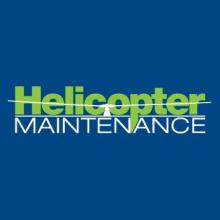Teamwork – An Interesting Concept
The Super Bowl has come and gone, as it has done for XLV years. There was a winning team and a losing team. The talking heads on TV, radio and internet have 20/20 hindsight and have been making comments on the performance of the teams, individual players and why the coaches did what they did. On occasion they mention teamwork.
Teamwork, what an interesting concept!
As helicopter maintenance professionals, I am sure that you have heard the term “teamwork” or the expression, “let’s work as a team” to accomplish a particular task. I find the concept of teamwork in the workplace to be somewhat of a misnomer.
In sports, individuals work together as a team to achieve a similar goal — to score more runs, touchdowns, baskets or goals than the opposing team. These individuals practice various plays together, wear the same uniforms and have their coaches analyze their performance to offer critiques that will make their performance better. Many teams even have scouts that watch the other teams play and report back on their strengths and weaknesses. In the sports world the term “teamwork” can be somewhat misleading. Teams do not get voted into a particular hall of fame, individuals do. Individuals are hired to become part of a team. Sometimes it works and sometimes it doesn’t. Just because someone is perceived at being good at what they do does not mean they work well with others.
The first year the New York Mets joined professional baseball, they lost more games in a single season than any other team in the history of major league baseball. You can have a team, but if you have the wrong people in the wrong positions, the team is doomed to fail from the start.
Depending on the size of your organization, you could have numerous mechanics with varying competencies, or just one or two individuals that have to do it all. The typical flight department has two main parts, flight crew to fly the mission and maintenance to keep the helicopter mission capable. In this environment, teamwork is not just a term, but a necessity. Lives may well be on the line and it is everyone’s responsibility to get it all right the first time.
Poor teamwork is usually the result of many different problems that pervade the workplace at the same time. Some of these problems are:
- Lack of communication – both written and verbal
- Lack of knowledge – mechanics performing jobs that they are not trained to do
- Lack of resources
- Pressure and stress – not being realistic in promising when a job will be completed
- Complacency – “We’ve always done it this way, it’s no big deal.”
- Fatigue
Good teamwork should encompass at the very least the following points:
- Good, sound communication between flight operations and maintenance, logbooks, worksheets, etc.
- Never assuming anything
- A robust safety culture supported from the top down
- The use of checklists as necessary
- Everyone holding themselves accountable for the work they performed
- A structured means of safety/risk management in the decision-making process
- A means of demonstrating safety management capability before system failures occur
- An effective means for knowledge sharing among the workforce
Teamwork — where you work, is it an interesting concept or a reality?

